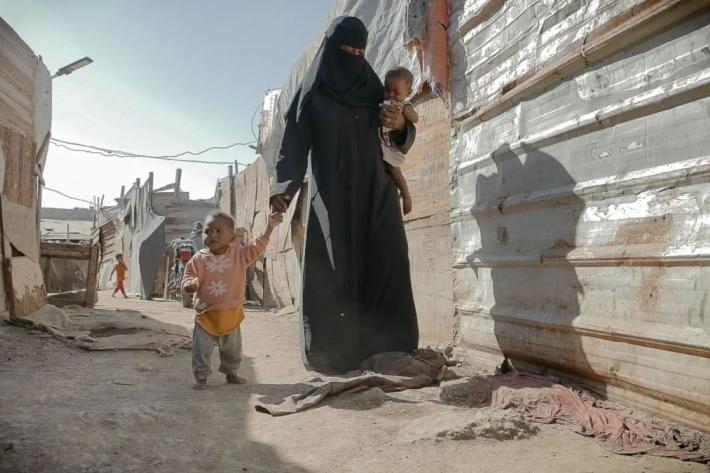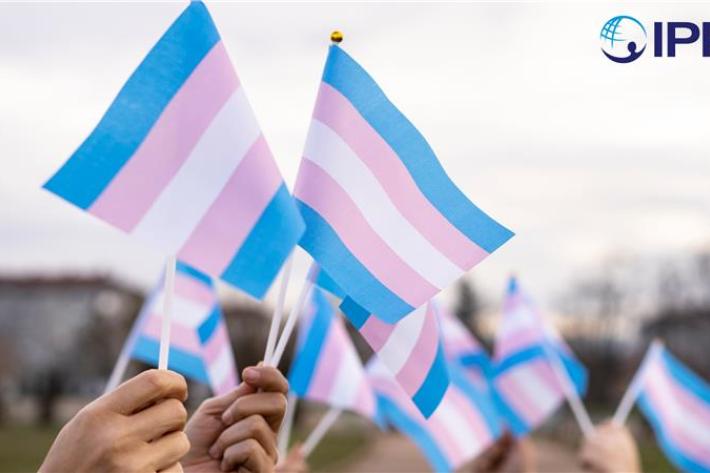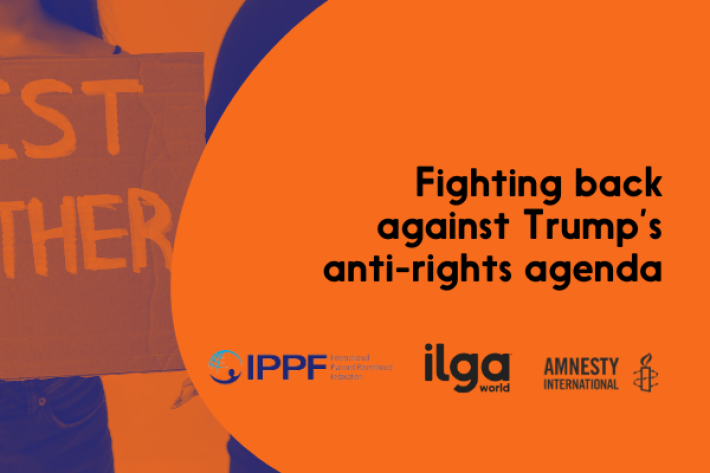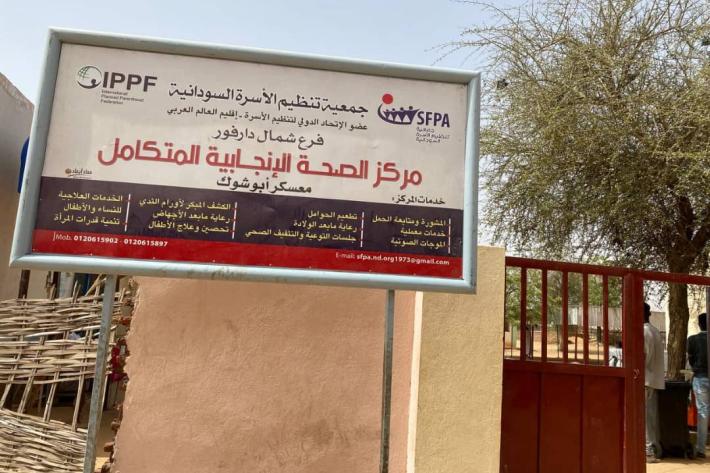
Spotlight
A selection of news from across the Federation

IPPF announces the launch of the call for applications for the post of Director General
The Director-General will play a crucial role in shaping IPPF’s strategic and operational direction, ensuring strong governance, transparency, inclusion, and collaboration.
Filter our news by:


| 10 November 2022
Sexual and reproductive justice to deliver the Nairobi commitments
Today, the International Planned Parenthood Federation (IPPF) is helping launch the second report of the High-Level Commission on the Nairobi Summit, also known as the International Conference on Population and Development 25 (ICPD 25). The Commission is an independent advisory board comprised of 26 members from different sectors tasked with monitoring progress on the ICPD Programme of Action and Nairobi Summit Commitments. The programme of action contains commitments from 179 countries to put the rights, needs and aspirations of individual human beings at the centre of sustainable development, part of which includes achieving universal access to sexual and reproductive health for all. The report - ‘Sexual and reproductive justice as the vehicle to deliver the Nairobi Summit commitments’ - highlights sexual and reproductive justice as the key to the realization of the Nairobi Summit commitments. Sexual and reproductive justice is a universal concept. It includes the right to have or not have children, the right to parent one’s children in safe and sustainable environments, and the right to sexual autonomy and gender freedom. Monitoring the implementation of life-saving sexual and reproductive health and gender-responsive services is crucial to ensure accountability and human rights for all. However, while some progress has been made, many barriers persist, and millions worldwide still do not realize their sexual and reproductive rights. Progress on Nairobi Summit Commitments: Numerous country commitments made at the Nairobi Summit align with a sexual and reproductive justice framework. They pay explicit attention to marginalized and vulnerable populations, notably people with disabilities, refugees, migrants (particularly migrant women), young people and older persons. Indigenous peoples, people of African descent and other ethnic minority groups have received less attention. A slew of new reproductive rights legislation followed the Nairobi Summit, suggesting a basis for a sexual and reproductive justice framework. The high number of commitments prioritizing sexual and gender-based violence offers a powerful entry point for promoting sexual and reproductive justice. On the Summit’s Global Commitments, some improvement is evident in meeting unmet need for family planning. But no region has registered positive movement towards zero preventable maternal deaths. Greater access to family planning has yet to translate into better maternal health outcomes. There is some progress in offering comprehensive and age-responsive information and education on sexuality and reproduction and adolescent-friendly, comprehensive, quality and timely services. Certain regions and countries have advanced in providing timely, quality and disaggregated data. More must be done, but this creates opportunities for ensuring that data capture intersecting challenges and are used to inform laws, policies and programmes. Domestic and international finance is critical to sexual and reproductive justice but persistently lags commitments. More than 4 billion people globally will lack access to at least one key sexual and reproductive health service during their lives Dr Alvaro Bermejo, Director-General for the International Planned Parenthood Federation, said:

| 08 September 2022
IPPF launches new and improved Medical Abortion Commodities Database
The International Planned Parenthood Federation has redeveloped and relaunched its Medical Abortion Commodities Database. The updated site was designed to be more user-friendly with improved accessibility on both desktop and mobile devices. MedAb.org is the only public source of information on country-level availability of quality medical abortion commodities. Launched in September 2018, MedAb.org has filled a knowledge gap and has been a reliable source of information on availability of quality medical abortion products at country level for four years. The site currently contains product information for 102 countries, including 22 brands of misoprostol, 44 brands of mifepristone and 15 brands of combipacks. In 2021, site use grew significantly, with more than 30,000 active users, so IPPF undertook multiple analyses to understand more about these users. We redesigned the site to improve user experience for a broader range of user types, including researchers and academics. With more than half of site users identifying as individuals seeking abortion care, we improved signposting to trusted partners so they can access reliable and timely information. Catherine Kilfedder, IPPF’s Senior Programme Adviser, Abortion, said: “We needed to rebuild our site to improve technical functionality, but we saw an opportunity to simultaneously improve user experience. We embarked on a human-centred design project to understand our users and design a site to better meet their needs.” Site use continues to grow, with more than 50,000 active users in the first eight months of 2022, and IPPF is thrilled to respond to this growing user base with a new and improved MedAb.org.
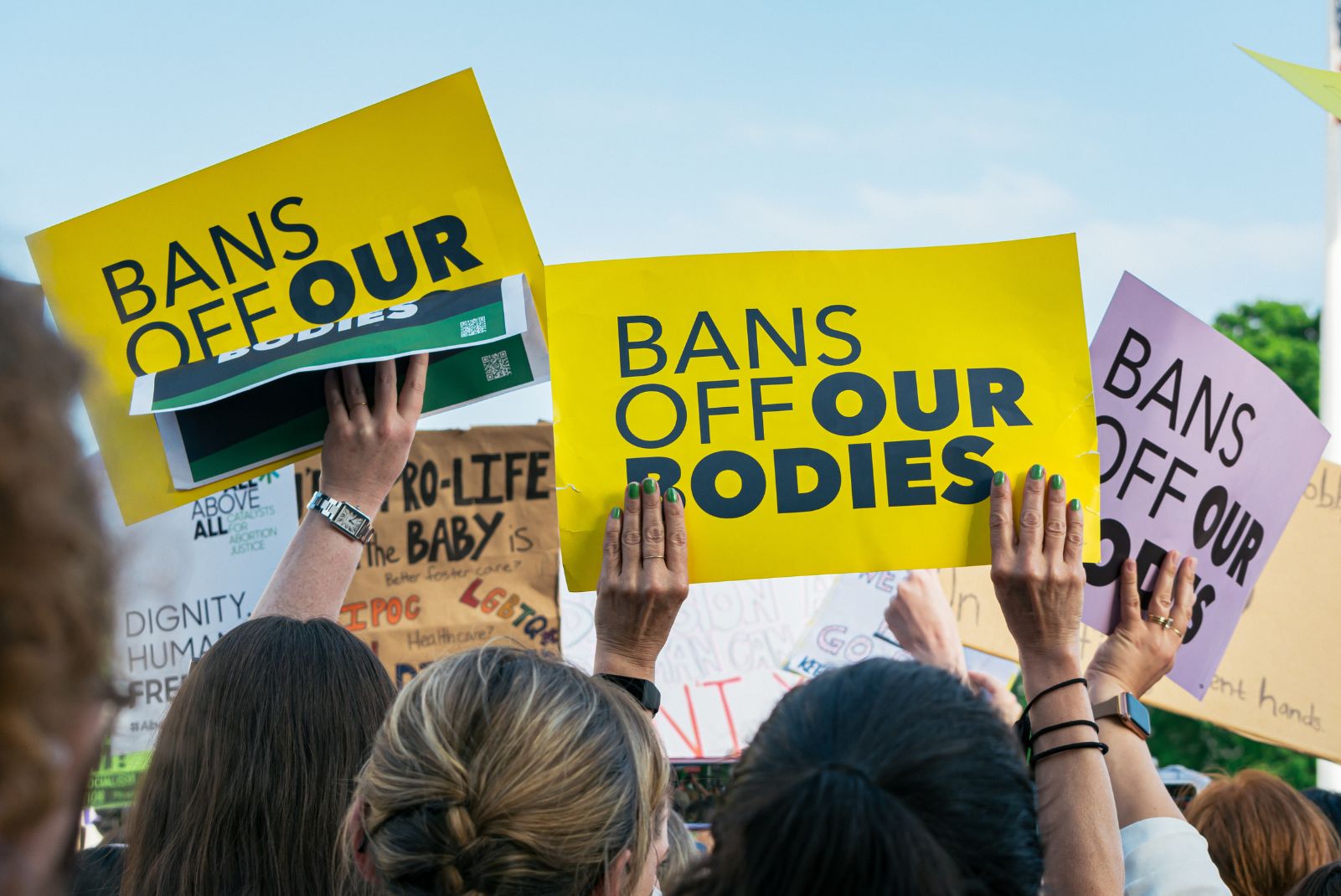
| 24 June 2022
As the US Supreme Court overturns Roe v. Wade, global healthcare organizations call on all governments to defend access to safe and quality abortion care
Ensuring access to safe, quality abortion is an imperative. Abortion is recognised as essential health care that must be provided by governments. Access to safe abortion is also a human right. Attacks against reproductive freedom are attacks on democracy and international human rights standards, on individual freedoms and the right to privacy, and they set back progress towards gender equality. The United States Supreme Court decision to dismantle Roe v Wade and roll back 50 years of access to safe abortion care is a catastrophic blow to the lives of millions of women, girls and pregnant people who now face the prospect of being forced to continue pregnancies. It is a decision that will cost lives for years to come. The US joins just a handful of countries that have actively reduced access to abortion care in recent years. This is out of step with the global community’s commitment to advance human rights and fails to take into account the overwhelming global medical evidence that supports abortion as essential health care. Around the world, progress is being made to remove restrictions to care for example Latin America’s ‘green wave’ (Mexico, Argentina, Colombia, Chile) in Africa (Benin, Mozambique, Kenya), Asia and the Pacific (Thailand, South Korea, Australia, New Zealand) and Europe (France, Ireland, England). Governments are responding to feminist grassroots movements and acting upon evidence-based findings and World Health Organization (WHO) guidelines that draw on clinical and technological advancements, including telemedicine and self-management of abortion care, in order to guarantee their populations’ rights to essential health care. As organizations dedicated to providing and supporting health care, we know that restrictive laws do not reduce the need for abortion care. Rather, such laws increase inequities in access; nurture an environment of fear, stigmatisation and criminalisation; and put women, girls and pregnant people at risk. Abortion laws not based on scientific evidence harm health care workers. Countries with total bans or highly restrictive abortion law prevent and criminalise the provision of essential health care services and support to those that require abortion care. Many individuals supporting abortion care experience abuse, threats and even violence. In the United States, such incidents are commonplace and have even resulted in the murder of health care professionals. Further isolating these dedicated health care workers with restrictive laws will put them at even greater risk. Lack of access to safe abortion care is one of the leading causes of preventable maternal death and disability. Each year 47,000 women in the world die as a result of unsafe abortion and an estimated five million are hospitalised for the treatment of serious complications such as bleeding or infection. Supporting safe and high-quality abortion care is a demonstration of a government’s commitment to reproductive and social justice. Abortion care is an integral part of comprehensive health care provision – the need for this care will not go away. Limiting access to abortion care takes the greatest toll on the lives of women, girls and pregnant people; those living in poverty; those with marginalised racial, ethnic identities; adolescents; and those living in rural areas. A denial of abortion care further exacerbates their historical discrimination and mistreatment, and places them at the greatest risk of preventable maternal death and disability. As national, regional and global health care organizations, we urge all governments to take immediate action to: Create and protect legal and regulatory environments that support health care professionals to provide access to safe and affordable abortion care. Access to abortion care should be protected and supported as an inalienable reproductive right. Decriminalise abortion care and regulate it like any other health care provision. Decriminalising abortion refers to the removal of specific criminal and/or civil sanctions against abortion from the law, so that no one is punished for having, providing or supporting access to abortion. Utilise the full benefit of the safety and efficacy of abortion medication, as well as the advancement of technology, to allow telemedicine and self-management access to abortion, as recommended by the WHO Abortion Care Guideline. Invest in robust health systems that are human rights-centred for abortion care information, counselling and services. Prioritise training on abortion care as an essential part of professional development for health care professionals – integrate it into lifelong learning to ensure health services are universally available. Such approaches should be linked to reproductive and social justice movements, and should include actions that address the needs and rights of communities that have been historically discriminated against. Want to take action? Endorse this global statement condemning the Roe v. Wade decision Main image by Gayatri Malhotra on Unsplash
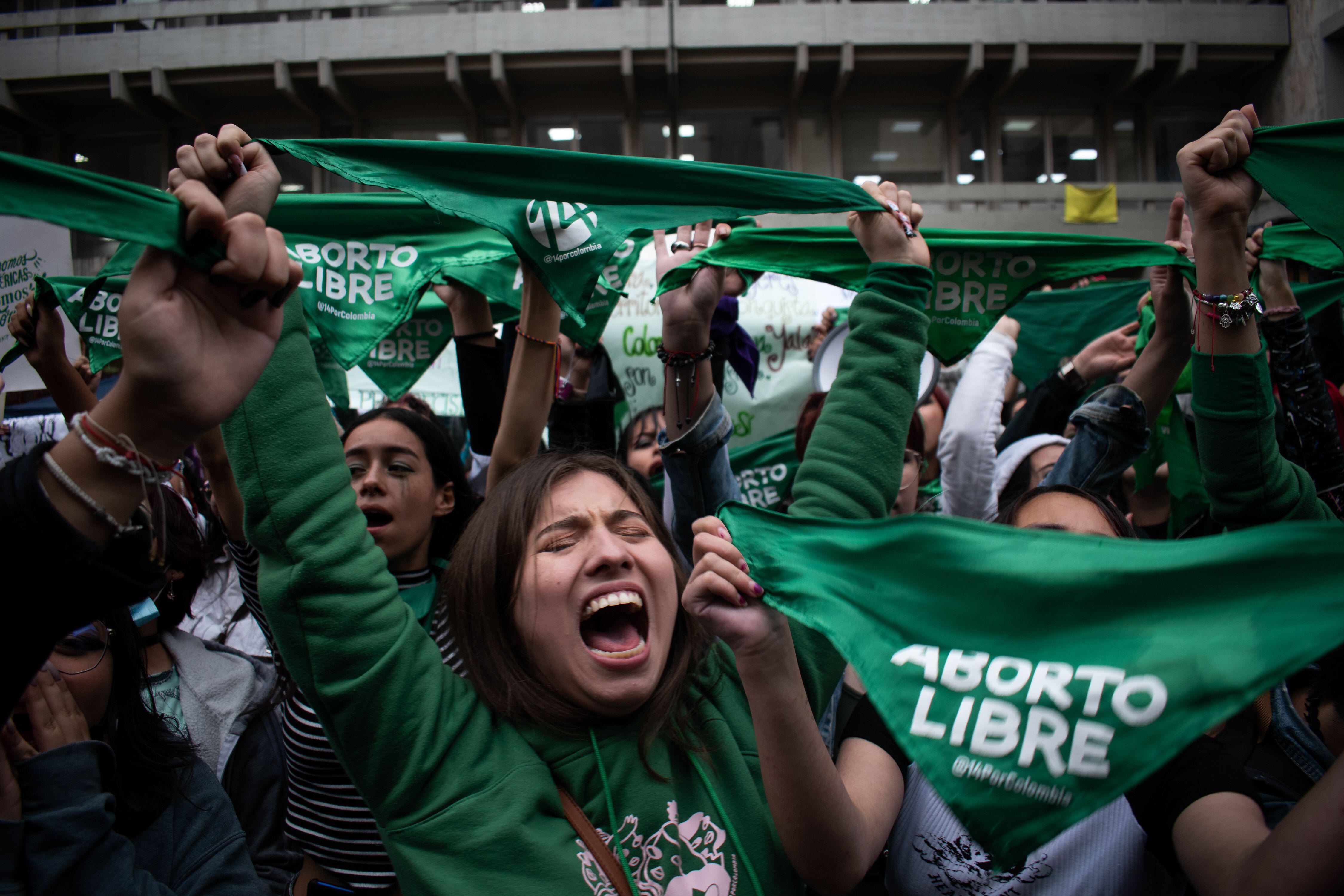
| 22 February 2022
Colombia decriminalizes abortion
The Colombian Constitutional Court has decriminalized abortion up to 24 weeks in another victory for the Green Wave sweeping through Latin America. The historic decision follows years of campaigning by women's right's activists across Colombia and came off the back of two lawsuits that asked the court to declare article 122 of the penal code, that "the woman who causes her abortion or allows another to cause it, will incur a prison sentence from sixteen (16) to fifty-four (54) months" as unconstitutional. Having delayed several times over the past two years, the court called an extraordinary meeting on Monday 21st February 2022, and took just a few hours to come to its decision - ruling five against four to decriminalize the healthcare procedure. The decision will go into effect immediately. ProFamilia, IPPF's Member Association in Colombia, and Colombia's largest provider of legal abortion care was heavily involved in pushing to extend the rights of those needing to access abortion care. Colombia follows other countries in the region such as Mexico and Argentina, while parliamentarians in Ecuador last week eased regulations to allow access to abortion in cases of rape. Marta Royo, Executive Director for Profamilia, IPPF's Member Association in Colombia, said: "Today is a ground-breaking moment for the people of Colombia and a long-overdue guarantee of reproductive rights and dignity for all those who need abortion care, especially poor and rural women who bear the brunt of restrictive abortion policies. "The decriminalization of abortion up to 24 weeks in Colombia and the Green Wave movement across Latin America is centred not just on public health, but also the full lives, citizenship and human rights of girls, adolescents, and women – who, for multiple reasons, including inequity, access to education, gender-based violence and barriers to healthcare – continue to face unintended pregnancies. "The freedom for women to finally make their own choices about their pregnancies and their bodies is fundamental to disrupting the cycle of poverty that so many in Colombia face. This monumental decision is also a win for the dedicated health care providers, who will finally be recognized as people who simply care about the needs of others." While Colombian women have supposedly been able to access abortion care since 2006 under three circumstances: if their life or health is at risk, in cases of fatal foetal abnormalities, or if the pregnancy is the by-product of rape or incest, in reality, the criminalization of abortion persisted. The Guttmacher Institute found that less than one per cent of the estimated 400,000 abortions carried out each year in Colombia are performed legally, with women, especially poor, rural, vulnerable and marginalized women, facing significant barriers to accessing safe and timely abortion care. Many Colombian women are instead forced to carry their pregnancies to term or else seek other methods to end them. Figures collected by ProFamilia showed that during 2020, there were at least 26,223 unsafe abortions across Colombia, a startling amount for which consequences range from infection to life-changing injuries to death. As per the previous abortion law, other women have been imprisoned for up to four and a half years for having an abortion, even in cases where abortion should have been legal. In a shocking example of discrimination, data collected showed that poor rural women were more likely to be charged, with a third of those who faced charges also survivors of sexual violence. Eugenia Lopez Uribe, IPPF's Regional Director for Americas and the Caribbean Region, said: "Today Colombia took another step in the right direction for gender equality and full human rights for all, and we are incredibly proud of IPPF's Member Association, ProFamilia, for their tireless work alongside thousands of activists across Colombia and Latin America "This 24-week decriminalization is historic in the region and especially remarkable when we consider the current fragility of abortion rights globally and the anti-choice movements which continue to plague nations across the world, including in countries close to home like the United States of America. "While today we are celebrating this historic decision, the Green Wave is strong and growing, and the fight for reproductive rights and justice will not end until every person can access high-quality sexual and reproductive healthcare when and where they need it."









